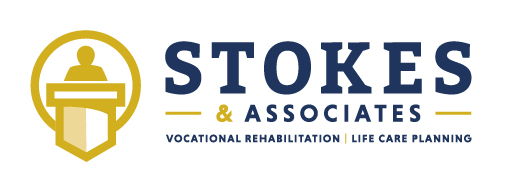Why is the Claimant Interview Important in Vocational Rehab and Life Care Planning?
When conducting a life care plan or vocational assessment, the vocational/life care plan expert should have the opportunity to interview the claimant. An interview evaluation of the claimant provides the expert with current information from the claimant’s perspective. For example, a clinical interview covers topics such as Medical Summary (a chronology of medical history since the time of the injury), Current Medical Providers, Current Medications, Claimant’s Report of Pain and Physical Limitations, Independence in Activities of Daily Living, Equipment and Supply Needs, Prior and Subsequent Injuries and Residual Limitations, Heath Habits and Mental Health, Education and Work History, and Vocational Rehabilitation Goals/Plans.
An interview evaluation allows the vocational counselor/life care planner the opportunity to gather additional information regarding the claimant’s medical treatment not identified through a medical record review alone. For instance, during a clinical interview, the vocational counselor/life care planner often learns that the claimant began treatment with additional or new medical providers not identified through the record review. An interview may also determine that the claimant uses specific durable medical equipment and supplies that help improve their independence and provide pain relief. This equipment and supplies often are not known by the treating physician.
The interview evaluation also allows the vocational counselor/life care planner to collect detail regarding the educational attainment and work history. The vocational counselor/life care planner can then explore elements of the job because a job title alone may leave out important information like essential job duties. The interview also includes the tenure of employment in each position. Time in an occupation can assist the vocational counselor/life care planner to determine whether the claimant has met the specific vocational preparation required to gain the transferable skills for alternative work options. Job tenure can also predict the claimant’s wage-earning capacity, both pre-injury as well as post-injury. Vocational testing (available electronically) could also be administered during the evaluation when appropriate to inform rehabilitation potential and employability.
A clinical interview of the claimant allows for a thorough vocational and life care plan assessment. Obtaining detail through this interview process adds to the level of analysis needed for a thorough evaluation. Although we can perform a vocational or life care plan evaluation based on records alone, a meeting and interview with the claimant enhances the assessment process.
To strategize with one of our vocational rehabilitation or life care plan experts at Stokes & Associates, please call Dave Barrett at 504-454-5009, visit our website, www.stokes-associates.com, or e-mail dbarrett@stokes-associates.com.
Larry S. Stokes, Ph.D.
Aaron Wolfson, Ph.D.
Lacy Sapp, Ph.D.
Todd Capielano, M.Ed., LRC, CRC, LPC, CLCP
Ashley Lastrapes, Ph.D., CRC, CCM, CLCP, LPC, LRC
Brandy Bradley, MHS, CRC, LRC, CLCP
Elizabeth Peralta, M.Ed., LRC, CRC, CLCP
